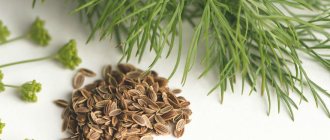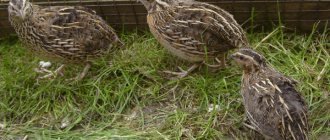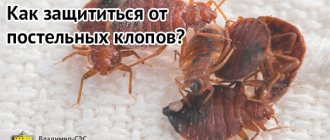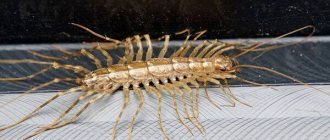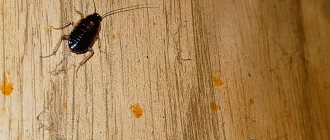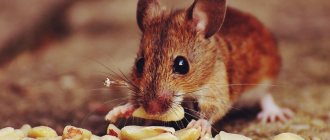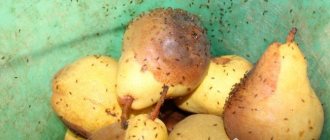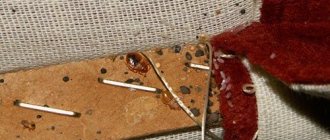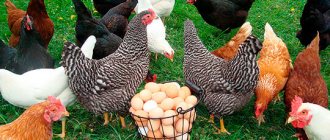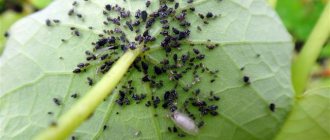The advantages of this method of maintenance
About 50 years ago, quails began to be raised in our country. They are kept in different forms: cages, enclosures, sheds. Recently, city residents have begun to raise small livestock in their apartments. Of course, it is better to do this on balconies and loggias. The benefits of this content:
- The balcony has natural light, and this has a good effect on the egg production of the bird. Read about the benefits of quail eggs here.
- Quails are very shy and react sharply to loud sounds, and it is always quiet on the glassed-in balcony;
- If you place them there, there will be no smell, which certainly arises if you keep several quails.
Of course, it is better to raise poultry in the village on a farmstead. But what to do if there is no dacha or personal plot. Place the cage on the balcony.
This means that you will have to refurbish a special corner in the apartment and raise this particular type of bird, because quail have a number of advantages:
- Unpretentiousness;
- High egg production;
- From an aesthetic point of view, they have a share of charm. These are not aquarium fish, parrots or cats, but they also attract attention.
Read here when quails start laying eggs.
Inventory
Keeping quails requires constant care, so you need to purchase the necessary equipment. By visiting the store you can buy everything you need there:
- It is advisable to purchase automatic bunker feeders. This will facilitate feeding, which is carried out up to 3 times a day. You can make a regular feeder yourself.
- Drinkers should be automatic, which will provide the bird with constant access to fresh water.
- If the goal is to breed quails, then you need an incubator.
- Trays and grids for cleaning cages.
Quails are very friendly and unpretentious to their living conditions. They lay eggs almost every day. Males can often be heard singing. All this is very attractive and keeping them in the apartment becomes useful and at the same time interesting.
Specifics of apartment maintenance
Quails are quiet birds. They don't bark like dogs and don't make noise like parrots. And they are also useful, as they lay well and can provide very healthy eggs. Although not large, but every day. Of course, keeping an apartment has its own specifics, since even a few birds can be a source of smell and dirt. But this is only if you don’t clean up after them regularly. Therefore, before you decide to buy young animals, you need to weigh the pros and cons, and give yourself answers to the following questions:
- You need to buy a cage or you can make it yourself to keep a miniature bird;
- Where to place it so that the apartment owners and the quails feel comfortable;
- Do you have the time and desire to clean the cage every day? Because if this is not done, then there will be an unpleasant smell in the apartment, which will permeate even things;
- Is it possible to prevent bird diseases, because some are transmitted to people?
If a person is confident that these issues will be resolved, then he can start breeding quails in an apartment. And you need to start with choosing a cell.
Choosing a cage for an apartment
The volume of the cage depends on the livestock. If there are 2-3 individuals, then a parrot cage will be suitable. When a large population is planned, you will have to buy a future quail habitat with a front mesh wall or use special cage batteries. For 15 egg-laying quails you will need a room measuring 55x50x25 cm.
If you plan to breed quails, then for each family (one quail and 2-3 females) you will need a separate cage measuring 30x40x25 cm. The floor should be mesh with a special tray: through the cells the droppings will fall into the tray. But the cells must be small so that the quails do not fall out of the cage.
Basic requirements for the equipment of the holding room:
- It is better to make the floor with a slight slope, then the eggs will roll into a special tray;
- Perches and nests for quails are not equipped;
- Feeders should be attached to the side walls, 2 cm long per quail;
- The drinking bowls are placed so that water does not get into the pan, because this will provoke decomposition of the droppings and the unpleasant odors will increase in the apartment;
- The tray is filled with pet litter or dry sawdust after each cleaning.
All age groups should be kept in separate cages, preventing young animals and adults from being in the same cage.
Choosing a location
To keep quails, it is important not only to buy a cage of the right size, but also to place it correctly. Of course, it is better to do this on a glassed-in balcony. It’s quiet there and no one scares the quails. But then it is advisable to equip an exhaust system, and if the cage is made of mesh, then line the three side walls with foam plastic. Because, according to reviews from some city residents who keep quails in apartments, the placenta may end up not only in the pallet, but also on the walls of the balcony. In addition, this material will insulate the cage in winter if the balcony is cold.
It is necessary to line the cage so that the bird cannot reach the foam with its beak. Otherwise, the quail will start pecking at it.
In addition to the balcony, you can use an old, non-working refrigerator by removing the door from it and placing bird cages on the shelves. This is a solution for those who do not have a balcony. The refrigerator can be placed in an empty area near the toilet. But this is only suitable for a small population. True, there is a plus to this method: quails do not like the sun, they prefer the shade. If the balcony is on the south side, then you will have to shade it, but in the refrigerator there will always be partial shade that is comfortable for the bird.
Additional tips for beginners
Beginners have many questions, especially when it comes to poultry breeding.
For convenience, we have collected the best recommendations:
- There should always be a supply of food for birds, so that due to inattention there are no problems with the diet; interruptions will cause stress to the birds;
- Unnecessarily, one should refrain from picking up birds;
- do not use paper or newspaper as bedding, as their paws may move apart;
- make sure that the room in which the quail are kept is always dry and ventilated;
- lighting should not blind the birds or be too bright;
- Every week you need to give quails the opportunity to swim in the sand, this way they get rid of parasites.
Raising quails requires a lot of time, money and effort, but the benefits you get from their meat and eggs will justify your efforts. The main thing is to follow the rules of caring for them and create comfortable living conditions, for which you will receive fresh quail eggs every day as a reward.
Conditions
The townspeople mainly raise egg and egg-meat breeds. Therefore, a high egg production rate is important. And the location of the cells can affect this. When arranging a room for quails, the following conditions must be taken into account:
Silence. Quails are very shy birds. If the room is noisy, they feel stressed. Females begin to lay eggs poorly, young animals and males become aggressive towards weaker individuals.
Lighting. Quails love partial shade and cannot stand bright light. Be it artificial or natural. But in order for them to consume food well, the daylight hours for this type of bird should last 17-18 hours with a short break at night.
Temperature conditions. Quails grow well and develop at 18-20 degrees. High air temperatures lead to a decrease in egg production and deterioration in shell quality. At low temperatures, birds begin to get sick.
Relative humidity. Optimal is from 60 to 70 percent. If this indicator is below 50%, then the mucous membranes of the eyes and respiratory tract begin to irritate, and the fragility of the pen increases. To maintain the necessary humidity and to purify the air in the room, ventilation is installed.
Read about keeping quails at home for beginners in this material.
Maintenance and care
A balcony is chosen as housing for birds in an apartment. Keeping quails on the balcony has many advantages. But difficulties also arise, for example the need to eliminate unpleasant odors and ensure optimal conditions (humidity, temperature, absence of drafts).
Premises conditions
There are several requirements for comfortable living of quails on the balcony. Stress affects egg production and bird behavior. It is recommended to isolate the home from extraneous noise from the street, people and animals. Avoid drafts. In this case, the room must be ventilated to eliminate unpleasant odors. Maintain recommended temperature and humidity. For lighting quails, give preference to a soft light source. The light regime should last no more than 17 hours.
What kind of cells should there be?
Consider the location and size of the cage. The size of the structure depends on the number of pets. For 1 male and 4 females, you need a regular cage 40 centimeters long, 30 centimeters wide and 25 centimeters high. For ease of cleaning, the cage is equipped with a mesh bottom and a tray is placed down. Waste accumulates there. To remove the smell, use fillers or sawdust.
There is a tray for collecting eggs in the cage at an angle. Avoid prolonged exposure to direct sunlight. Quail chicks are kept separately from adults. Place drinking bowls and feeders outside, attaching them to the cage. This will reduce contamination and cleaning time. It is better to make the ceiling in the structure not too low and hard. When jumping, the bird may hit its head.
What diseases can there be and what can a person become infected with?
- There are about 90 different diseases that are transmitted to humans. Among them the most common:
- Pasteurellosis. Acute, subacute and chronic disease. Infection occurs through the respiratory tract, digestive tract, and skin wounds. In order to avoid the disease, the livestock is vaccinated;
- Salmonellosis (paratyphoid fever). Caused by pathogens resistant to the external environment. The source of infection is sick and recovered quail. Infection can occur through food and the respiratory system. For treatment, antibiotics, sulfonamide drugs, and hyperimmune serum are used;
- Colibacillosis. The causative agent is a pathogenic form of Escherichia coli. Infection occurs through food and the respiratory tract. In acute cases, the bird dies, and in subacute cases, the bird recovers. For prevention, young animals are vaccinated, and sick individuals are treated with antibiotics and sulfonamide drugs;
- Newcastle disease (Newcastle disease, pseudoplague, Asian plague). Caused by a virus. Quails in the first month of life are very susceptible. Infection occurs through food. The chicks die. Adult birds survive in some cases, but are a source of infection. Read about Newcastle disease in chickens at this link.
- Infectious laryngotracheitis. Mostly young animals are affected. The causative agent is a virus that is unstable in the external environment. Infection through food and respiratory tract. The course is acute with a high mortality rate of up to 60%. For preventive purposes, quails must be vaccinated.
Choosing domestic quail
To breed quails in an apartment, you should pay attention to chickens up to 1.5 months old; younger individuals may not be able to tolerate transportation and adaptation to a new home. When choosing quails for living in an apartment, you must carefully examine them from all sides.
The chick should be clean and look cheerful.
A good appetite is a good indicator of health, so it is advisable to purchase birds from their main habitat. Experienced breeders know this and do not interfere with a complete examination of the bird.
As for the types of breed, the most popular for home keeping are the Japanese breed of quail. Their selection was carried out specifically for apartment conditions and this species is easy to care for.
Important! Before purchasing a bird, you should weigh all your options. Quails are not fussy to care for, but they need care, like any pet.
How to get rid of odor
In cages for keeping quails, during their life, droppings are collected, which emit an unpleasant odor. Therefore, novice poultry farmers immediately think about how to raise poultry without this unpleasant phenomenon. In addition, in warm seasons, if hygiene rules are not followed, bird feces become an ideal environment for the proliferation of pathogenic bacteria. Keeping quails should not bring discomfort to the residents of the house, therefore it is recommended:
- Breed birds only on a balcony or vestibule that has windows so that the room can be ventilated;
- Remove all excess debris and foreign objects from the area where the cages will be located;
- Use only moisture-repellent mats or hay for bedding, which must be changed periodically;
- Often the cause of an unpleasant odor is particles of spoiled food and spilled musty water, so birds need to be cleaned at least twice a day, and it is better to replace nipple drinkers, for example, with ordinary cut glasses from which the bird will drink water. Nipples are a high-quality and economical drinking system, but they will still spray water onto the tray in which the droppings are collected;
- If you place a thin ball of peat in the pan, it will instantly absorb liquid from the droppings, and this will also rid the room of an unpleasant odor.
If you still use nipple systems for drinking, it is better to place them outside the cage so that drops of water do not fall on the sawdust in the tray.
Keeping birds at home without unpleasant odors
How to keep quails in your apartment? Even beginners can keep quails indoors in city conditions and eliminate the stench. In the land of the rising sun there are many beliefs that keeping quails in the house brings great luck and happiness. Raising quails in a city apartment is not only convenient for obtaining healthy products all year round, but also interesting. Breeding birds for decorative purposes is not new to city dwellers.
There will be no problems with quails in an apartment, if you take into account the basic conditions in which the bird feels good:
- Requirements for the cage. The birds live in a cage that is placed on the flooring. The shape of the fence must be rectangular, and a lock must be installed in the cage. It is wrong to allow birds into the entire house, otherwise you will not get rid of the smelly droppings. To insulate the walls of the cages, they are lined with special plywood. For proper air circulation in the constructed enclosure, only one open front part of the cage is used. Purchased or homemade enclosures are equally good for keeping quails at home.
- Number of domesticated birds. To equip large cages, enclosures with a built-in battery are used. There is no other way to heat all the livestock. Cell batteries are only suitable for bulky cells.
- Temperature and humidity. The optimal place for setting up an enclosure is a balcony, where it is easy to ventilate the air and clean the cages. The temperature on the balcony or open loggia must be at least 18°C at any time of the year. In winter, this temperature can be achieved using special lamps and poultry heaters. Daily ventilation of the enclosure eliminates drafts, which only harm the bird.
- Light mode. Quails are sensitive to light, and their cages cannot be exposed to open sun. The hypersensitivity of birds must be taken into account before installing aviaries in the house or on the balcony. For laying hens, bright sunlight is a great stressor. The decrease in egg production of females is explained by incorrect light conditions.
If you keep birds in the right conditions on a ventilated balcony, then it will be much easier to avoid unpleasant odors. Raising quails in an apartment with human comfort means constantly ventilating the cages, which are located in the shade on the balcony.
When raising quails at home, chicken droppings are cleaned according to all the recommendations of experienced poultry farmers. Poultry waste must not be disposed of in a common pipe or through a toilet flush. Poultry waste contains microbes, bacteria and pathogenic microorganisms that can threaten the entire household. Air fresheners do not remove the smell.
How to choose a breed for an apartment
For keeping in an apartment, quail breeds are selected according to the following criteria:
- Determine which direction you will have birds. Egg or meat;
- If you plan to keep quails only for eggs, you can select only females;
- When choosing chicks, you should pay attention to their appearance. Chickens should be active, squeak loudly, have a good appetite, clear eyes and dry tummies. The feathers near the anus should be clean. You should not purchase emaciated or overfed birds. It is also necessary to pay attention to the shape of the beak of young individuals. If it is dull and bent, this means that the quail is old.
This article will tell you about the feather removal machine for quails.
For example, the following breeds of quail are suitable for keeping in an apartment:
- Japanese. Egg direction. The weight of males is 130 g, females up to 150 g. Quail of this breed can lay 270-300 eggs per season. The advantage of the “Japanese” is that the birds are early maturing and at the age of two months they begin laying eggs;
- Pharaoh. Breed for meat production. Compared to other quails, the bird gains quite a lot of weight. Males 280 g, females slightly larger. Around 300;
This breed is also good because the eggs laid by hens are larger than those of other quail breeds. About 18 grams. In a year, a bird can lay down 180–200 pieces.
- French quail. Meat and egg direction. The weight of a male reaches 300 g, a female - 400 g. Egg production in comparison with the egg breed is small and amounts to 220 eggs per year, but the mass of the egg is greater. Around 16
Feed
The main role in keeping quails in an apartment is played by food, which mainly consists of feed for laying hens. You can prepare it yourself, or you can buy it ready-made in stores. Often they use food from pet stores intended for ornamental birds.
Grind grains of wheat, soybeans and corn. The quail diet should include nutritional supplements. This could be: fish meal, vegetable oils, fish oil, vitamins and minerals.
The required amount of food is calculated so that the birds eat it in half an hour. They should not be overfed, otherwise the quail will become fatty, and this will reduce their egg production. It is recommended to feed:
- borage, nettle, yarrow, Jerusalem artichoke, dandelion greens;
- in the summer they happily eat earthworms and all sorts of spiders, snails and slugs, which serve as a delicacy for them;
- waste from cabbage, cucumbers and carrots, beets and pumpkins;
- in winter, it is advisable to add green onions, sprouted grains, vermicelli and boiled potatoes to food;
- There should always be chalk, eggshells and lime in the feeders, since quail lay eggs almost all year round and they need to eat a large amount of calcium.
It is not recommended to add all nightshades to food.
It is mandatory to carry out preventive measures, so-called ash baths, once a week. Quails bathe in them, getting rid of unnecessary insects.
Freshly picked yarrow is a good addition to a quail's diet.
conclusions
In order to breed quails in an apartment you need:
- Select cells. Parrot cages are suitable for two or three individuals. If the livestock is large, you will need a correspondingly larger room. The cells should not be very wide so that the chicks do not fall out.
- Choosing a location. It is better to keep birds on a ventilated balcony, where it is quiet and no one will disturb them. The front wall of the cage should be transparent, the rest should be lined with opaque material.
- Create good living conditions for the bird. Silence, lighting, temperature and relative humidity.
- To prevent an unpleasant odor in the apartment, it is necessary to regularly clean the tray.
With proper maintenance, a high-quality diet and compliance with hygiene rules, it is possible, even in urban conditions, to keep quails in an apartment and obtain healthy eggs and dietary meat.
Is it possible to keep quails in an apartment?
In Japanese culture, quails are considered birds that bring happiness and prosperity to the family, so their presence in the apartment will not surprise anyone. They are kept in cages similar to how we keep parrots, but the benefits from the former are much greater.
In our country, it is still unusual to meet these birds in an apartment, but due to the usefulness of their eggs and meat, this practice is becoming more and more popular every year.
Did you know? Quail eggs contain vitamins and microelements; in addition, they do not contain cholesterol, which is harmful to human blood vessels.
Considering that quails are unpretentious birds, it is realistic to breed them in an apartment. The main thing is to provide them with the right diet and monitor sanitary conditions.
Features of maintenance and care rules
To achieve good results in breeding birds in an apartment, it is important to provide them with a suitable microclimate and properly care for them.
Indoor conditions
Here are some requirements for the conditions in the room where birds are kept:
- Quails cannot tolerate increased noise, otherwise they may begin to peck eggs, and their egg laying will decrease. Therefore, they need a room without constant human presence, isolated from noise produced by household appliances and street traffic.
- You can keep the bird in any convenient room, protected from drafts.
- It is necessary to regularly ventilate the room with quails to eliminate odors released as a result of their vital activity.
- The optimal temperature in the room where birds are kept is not lower than +18 degrees (higher is acceptable).
- Daylight indoors should not exceed 17 hours.
- The lighting should not be too bright. It is best to use infrared lamps for this.
- The humidity in the room should not be higher or lower than 60%.
- If you follow all these simple rules, then the birds will not emit unpleasant odors typical of any birds, and will also feel calm and fly well.
Cage requirements
The following requirements apply to the cage where the birds will be kept:
- The design must be of a size corresponding to the number of pets: 1 male and 4 females are placed in one cage. In this case, the cage should have the following parameters: length - 40 cm, width - 30 cm, height - 25 cm.
- The cells of the net must correspond to the age of the quails so that the birds do not fall out onto the floor.
- For ease of cleaning, the cages are equipped with a mesh bottom and a special tray: through the cells, the droppings will be collected in the tray.
- You need to fill the tray with pet litter or sawdust: this way the litter will absorb the unpleasant odor.
- The cages must be equipped with a tray with a slope for collecting eggs.
- Poultry containers should not be placed in a place exposed to direct sunlight.
- Young animals must be kept separately from adults.
- In order to save space in the room, cages can be built in several tiers.
- Nests and perches are not built inside the cells.
- The ceiling in the cages should not be too low and hard, otherwise the birds will be injured when taking off.
- Drinkers and feeders should be placed outside the cage, attached to the front mesh.
Learn how to make your own quail cage.
Important! Once every ten days, quails need to bathe in sand and ash baths so that the birds can cleanse themselves of parasites.
What to feed quails
Quails should always be fed and have access to clean water. Feed the birds three to four times a day at the same time with food appropriate for their age.
Chicks
The diet for young animals should consist of the following feed:
- Mash, porridge, protein. From the first days, chickens are given a hard-boiled and shelled quail egg, adding to it small oatmeal, corn or wheat grits (in a ratio of 1 part cereal and 3 parts egg) and millet.
It is also necessary to introduce greens, sour milk, cottage cheese, and millet porridge into the diet. This menu will help saturate the chicks’ bodies with protein, carbohydrates, microelements and B vitamins, as well as promote good growth and muscle mass gain. The daily amount of food for each chick is at least 5 g. - Gravel. The presence of fine gravel in the diet of quails is mandatory. This will enable better digestion of feed in the stomach of young animals. The size of the granules should not exceed 2–3 mm.
- Mineral supplements. After the first week of life, the quails are given feeders with sifted sand, calcined in a frying pan, as well as containers with crushed shells, eggshells and chalk. These mineral supplements will strengthen the chicks' bones and saturate the body with calcium, iodine and magnesium. The daily rate of such additives is 1.2%.
- Leguminous and succulent feeds. From four weeks, the chicks are transferred to a full-fledged adult diet with the addition of legumes (peas, soybeans, lentils), meat and bone and fish meal, yeast, sprouted and crushed wheat, succulent feed (carrots, beets), while reducing the amount of protein. This measure is necessary so as not to provoke early egg production, which can affect the health of the livestock and future egg laying. Daily feed consumption at this age is at least 20 g.
